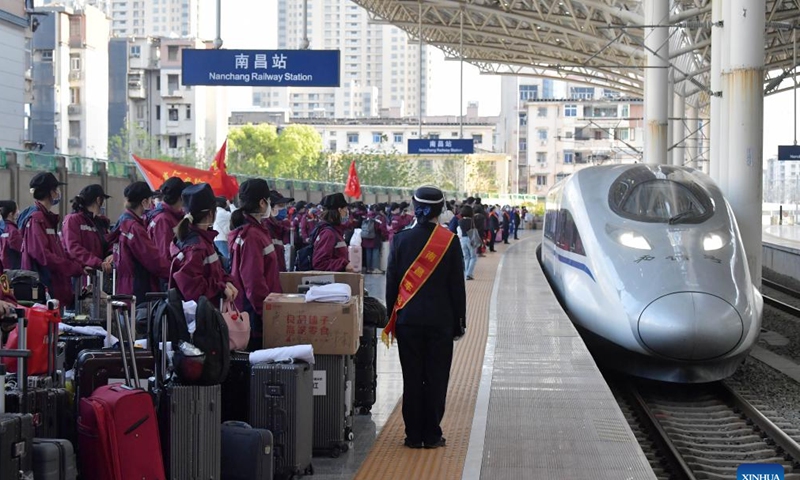China’s rail network is currently carrying around 3,000 passenger trains per day, less than 30 percent of the normal capacity, data from China Railway revealed on Tuesday, as the operator enhances prevention measures amid recent COVID-19 flare-ups across the country.
In order to ensure the smooth operation of the national railway network and the accessibility of key regions, stops or reductions of trains departing from the epidemic-related areas will be suspended at the maximum level, sale of train tickets will also be suspended or restricted, and passengers at risk of coronavirus infection will be restricted from purchasing tickets, the Chinese railway operator said.
The pre-sale period of passenger tickets has been adjusted from the previous 15 days to five days to minimize the risk of the rail network acting as a channel for spreading the virus.
The operator has strictly implemented various station and train prevention and control measures, such as temperature and health code checking, decentralized waiting areas, ventilation and disinfection and reserved isolation seats, and use of contactless wherever possible to create a safe and healthy travel environment.
In accordance with the requirements of the joint prevention and control coordination mechanism for the management of entry into Beijing, people from medium and high-risk areas will be strictly controlled and prevented from entering the capital city by rail, China Railway said.
It also stressed the importance of coordination between strengthening epidemic prevention and maintaining smooth transportation.
For the transportation of anti-epidemic personnel and materials, the operator said it will handle special cases and urgent matters, and do its best to support the transportation of medical staff, epidemic prevention and essential goods in Shanghai, Northeast China’s Jilin Province, Hong Kong and other regions.
Meanwhile, it will utilize idle transportation capacity vacated by the operation suspension of passenger trains to increase transportation of key materials essential to powering the economy such as coal, agricultural products, and raw materials used in construction.
Since March this year, a total of 39 trains have been dispatched to aid Hong Kong, more than 8,000 medical staff in anti-epidemic support in Shanghai and other places have been transported, and more than 30,000 tons of key anti-epidemic materials have been transported, data from China Railway showed.
Medical workers wait to board a train to Shanghai at Nanchang Railway Station in Nanchang, east China’s Jiangxi Province, April 3, 2022. Photo: Xinhua




